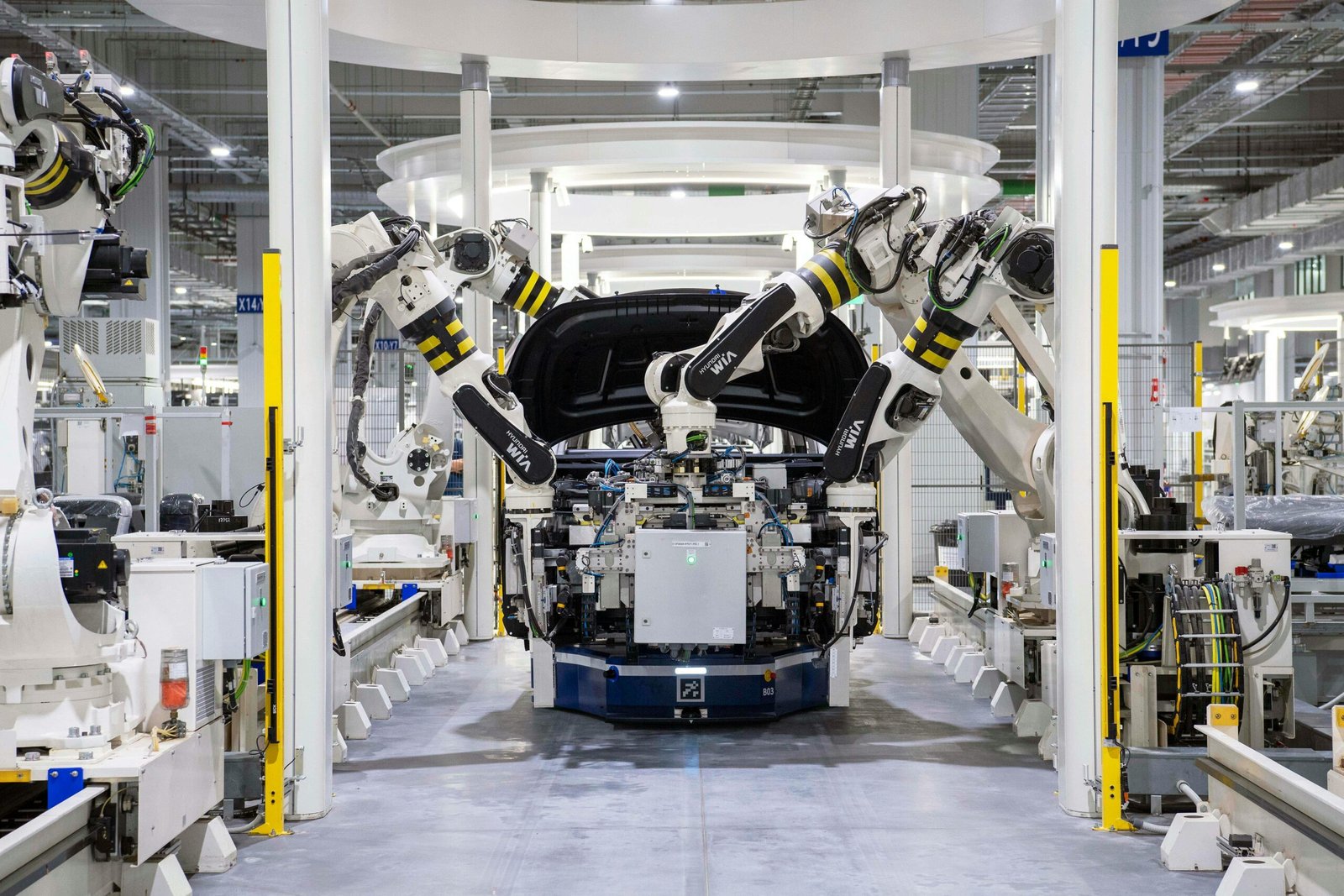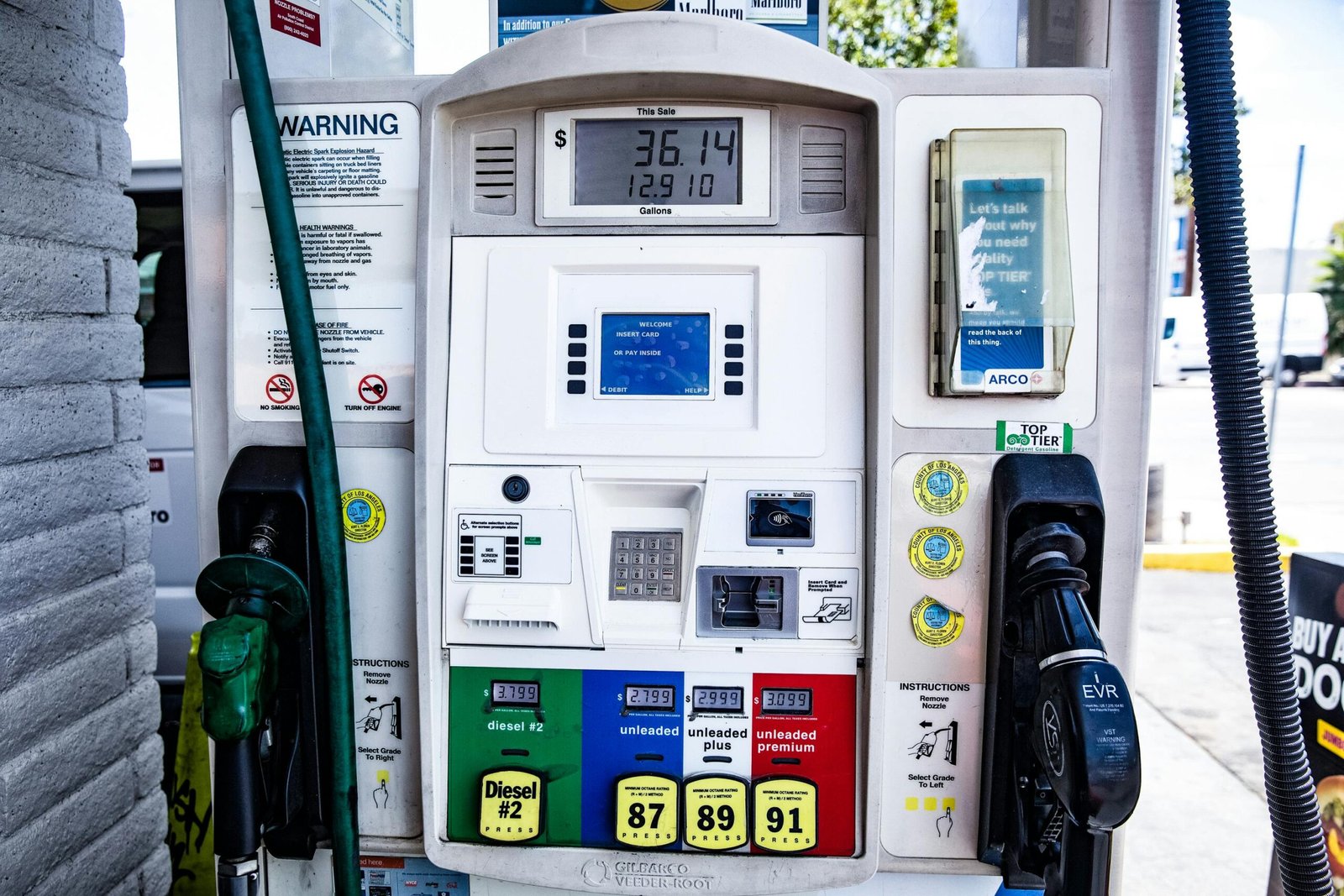The car industry has seen more changes in the past few decades than perhaps any other sector. If you think back to how cars were made even just 30 years ago, it’s wild how much has transformed. The rise of technology has dramatically altered everything from design to production and even sales. So, let’s dive into how technology has changed the landscape of car manufacturing and where things are headed.
1. Introduction: The Evolution of Car Manufacturing with Technology
We all know technology has had a huge impact on pretty much every aspect of life. But when it comes to car manufacturing, it’s been nothing short of revolutionary. From the first mass-produced car, the Ford Model T, to the advanced electric vehicles (EVs) we see today, tech has pushed the boundaries of what’s possible.
But how exactly has tech changed car manufacturing? Let’s break it down.
2. Automation: The Rise of Robots on the Assembly Line
One of the biggest shifts in car manufacturing has been the introduction of automation. It’s hard to imagine a modern car factory without robots working alongside human employees. These robots have taken over many repetitive tasks—such as welding, painting, and assembly—helping boost efficiency, speed, and precision.
For example, companies like Tesla have even gone as far as to design their own proprietary robots to ensure their cars are built to the highest standards. These robots allow for faster production times while also cutting down on human error.
3. Artificial Intelligence in Car Design
Have you ever wondered how car designs are created so precisely? Well, AI plays a big role in that. Designers now use artificial intelligence to create detailed 3D models and simulations, allowing for rapid prototyping without the need for physical models. This cuts down on costs and reduces time-to-market.
AI also aids in optimizing car aerodynamics, fuel efficiency, and even safety features. AI-driven simulations predict how a car will behave under different conditions, helping engineers improve the vehicle before it hits the production line.
4. 3D Printing: Revolutionizing Prototyping and Manufacturing
Gone are the days when car manufacturers had to wait months to produce physical prototypes. Thanks to 3D printing, manufacturers can now rapidly produce components, speeding up the design and development process.
Car manufacturers use 3D printers to create everything from engine parts to complex interior components. The benefit of 3D printing is that it allows for precision manufacturing with much less waste. It’s also perfect for making custom or low-volume parts, which is essential for the luxury car market.
5. The Role of Big Data in Improving Production Processes
Car manufacturers have more data at their disposal than ever before. Big data analytics has become a game-changer for improving efficiency, reducing defects, and making more informed decisions. By collecting data from various sources—supply chains, production lines, and even customer feedback—car manufacturers can identify patterns, predict demand, and improve quality control.
Manufacturers can track everything from part failures to shifts in consumer behavior. With this info, they can fine-tune production schedules, enhance quality, and even predict future trends in car preferences.
6. Electric Vehicles: The Shift to Sustainable Manufacturing
The rise of electric vehicles (EVs) has brought with it a whole new set of challenges and innovations in manufacturing. Unlike traditional gas-powered vehicles, EVs require entirely different powertrains and battery technologies, which have pushed manufacturers to rethink how they produce cars.
Technology has enabled companies like Tesla and Rivian to innovate in areas such as battery efficiency, vehicle range, and charging infrastructure. Even legacy manufacturers like General Motors and Ford are shifting their focus to electric cars, investing billions in new manufacturing technologies designed specifically for EVs.
7. Advanced Materials: Stronger, Lighter, and More Efficient Cars
You’ve probably noticed that modern cars are lighter and more fuel-efficient than ever before. This is largely due to the adoption of advanced materials in the manufacturing process. For instance, carbon fiber, aluminum, and high-strength steel are now commonly used to reduce weight while maintaining structural integrity.
Using these materials requires advanced technology to ensure precision cutting and shaping. For example, robots equipped with specialized tools can handle delicate carbon fiber parts, ensuring that the end product is both strong and lightweight.
8. Autonomous Manufacturing: Self-Sufficient Production Lines
Self-driving cars are all the rage, but what about self-driving factories? Well, thanks to automation and AI, car manufacturers have begun implementing autonomous systems not just in vehicles, but in production lines.
In an autonomous factory, machines can move parts, perform inspections, and even make decisions based on data without human intervention. This self-sufficiency reduces human error, increases speed, and cuts down on operational costs. It also allows manufacturers to operate more safely, especially in hazardous environments like painting or welding.
9. Augmented Reality (AR) in Car Manufacturing
When you think of augmented reality (AR), you probably picture someone playing a game or using it on their smartphone. But in car manufacturing, AR is used to train workers, visualize complex parts, and even improve maintenance.
Manufacturers use AR glasses to provide assembly line workers with real-time instructions, guiding them step-by-step as they assemble parts. This reduces mistakes and enhances the overall quality of the finished product.
10. Internet of Things (IoT) and Smart Manufacturing
The Internet of Things (IoT) connects devices and sensors to the internet, allowing manufacturers to track and control the production process remotely. In car manufacturing, IoT devices can monitor everything from the temperature of materials to the performance of robotic arms.
With IoT, manufacturers can spot potential issues before they become problems. For example, if a machine starts showing signs of wear, IoT sensors can alert operators to perform maintenance, reducing downtime and preventing costly repairs.
11. Blockchain Technology: Enhancing Supply Chain Transparency
The car manufacturing supply chain is incredibly complex, involving multiple suppliers, manufacturers, and distributors. Blockchain technology has emerged as a tool to enhance transparency and traceability in the supply chain.
By using blockchain, manufacturers can track the origin and movement of every component, ensuring the authenticity and quality of parts. This is particularly important in industries like automotive manufacturing, where the safety and reliability of components are paramount.
12. Virtual Reality (VR) for Training and Testing
Just like augmented reality, virtual reality (VR) is transforming how car manufacturers train their employees. Instead of having to learn on the job, new recruits can immerse themselves in a virtual environment that simulates the production line.
Moreover, manufacturers use VR to test new car designs before they’re built, allowing them to see how a vehicle will perform in different conditions. This technology reduces the need for physical prototypes, saving both time and money.
13. Sustainability: Green Technologies in Car Manufacturing
The push for sustainability has been a significant driving force in car manufacturing technology. Manufacturers are looking for new ways to reduce energy consumption, minimize waste, and lower their carbon footprints.
From electric powertrains to eco-friendly materials, the car industry is increasingly adopting green technologies. For instance, some manufacturers are now using recycled plastics and bio-based materials in car interiors, while others have implemented renewable energy sources like solar power in their factories.
14. Customization and Consumer Involvement
Thanks to advancements in digital manufacturing, consumers can now play an active role in customizing their vehicles. Companies like BMW and Audi offer online platforms where customers can select everything from interior finishes to engine specifications.
This level of customization has been made possible by advancements in technology that allow manufacturers to quickly adjust production lines based on individual orders, rather than producing mass quantities of the same model.
15. The Future of Car Manufacturing: What’s Next?
We’ve covered a lot of ground, but where do we go from here? The future of car manufacturing is undoubtedly exciting, with technology continuing to evolve at an exponential rate. Some areas to watch include:
- Full Autonomy: The dream of fully autonomous cars is slowly becoming a reality, and this will undoubtedly change how cars are built and sold.
- Advanced Robotics: Robots will continue to take on more complex tasks, reducing the need for human intervention.
- Sustainable Production: With the growing focus on the environment, car manufacturers will continue to adopt greener practices.
- Personalized Vehicles: The future might bring even more opportunities for consumers to personalize every aspect of their vehicle.
Conclusion: Technology’s Unstoppable Influence on Car Manufacturing
It’s clear that technology has not only changed car manufacturing but has revolutionized it. From the introduction of robots on the assembly line to the rise of electric and autonomous vehicles, technology continues to drive the future of car production.
As we look ahead, it’s exciting to think about how further advancements in AI, IoT, and sustainability will continue to shape the industry. One thing’s for sure: the car of tomorrow will look very different from the car of today, and it will be more tech-savvy, efficient, and sustainable than ever before.
FAQs
1. How has automation impacted the speed of car production?
Automation has significantly increased the speed of car production. Robots can work continuously without breaks, performing tasks like welding and assembly much faster than humans, which results in faster overall production.
2. What role does artificial intelligence play in car manufacturing?
AI is used in car manufacturing to optimize designs, improve safety features, and predict how cars will behave in different conditions. It helps engineers create smarter, more efficient vehicles.
3. Are electric vehicles more challenging to manufacture than traditional cars?
Yes, EVs require different components, such as batteries and electric motors, which demand specialized manufacturing processes. However, advances in technology have made the process more efficient and cost-effective over time.
4. How has 3D printing affected car production?
3D printing allows manufacturers to create complex parts quickly and with less material waste. It has streamlined prototyping and enabled the creation of custom parts, especially for high-end or niche vehicles.
5. What is the future of AI in car manufacturing?
The future of AI in car manufacturing includes more advanced automation, improved predictive maintenance, and even smarter, self-learning production lines. It will continue to enhance efficiency, safety, and design.




